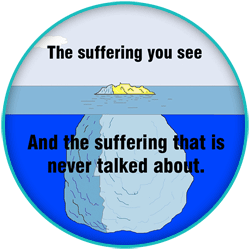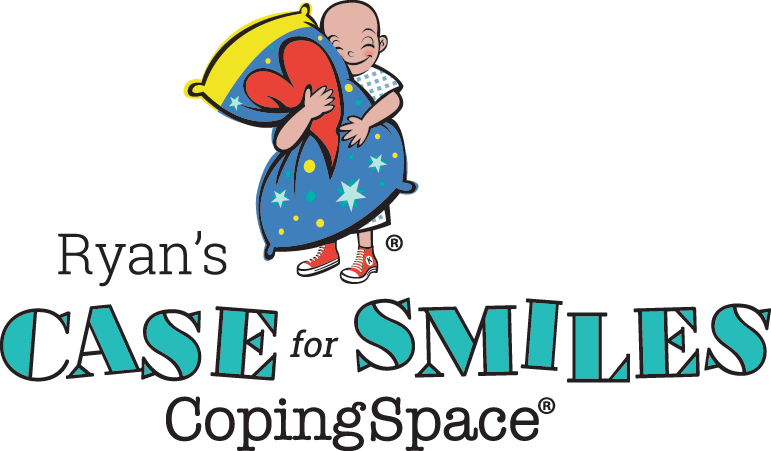MYTHS ABOUT PTSD
Many parents caring for a child who has an illness or injury have a hard time believing they are experiencing post-traumatic stress symptoms. Some believe PTSD only happens to people in the military. Others may believe that because it’s their child who is sick or injured, they themselves cannot be traumatized.
This simply is not true.
Many parents caring for an ill or injured child have a hard time believing they are experiencing post traumatic stress symptoms. Some believe PTSD only happens to people in the military. Others may believe that because it’s their child who is sick or injured, they themselves cannot be traumatized.
This simply is not true.

Many myths about PTSD, and seeking treatment from a professional, exist. You may think you’re “weak” or something is wrong with you simply because you are struggling. However, the truth is having an ill or injured child is hard, and it takes real strength to ask for help when you need it.
Below are some of the most common myths about PTSD, and the facts about what you may be experiencing. Additional information is also available here.

Many myths about PTSD, and seeking treatment from a professional, exist. You may think you’re “weak” or something is wrong with you simply because you are struggling. However, the truth is having an ill or injured child is hard, and it takes real strength to ask for help when you need it.
Below are some of the most common myths about PTSD, and the facts about what you may be experiencing. Additional information is also available here.
I Am Weak If I Experience PTSD Symptoms
Some people, especially men and parents, can feel that they have “to be strong” all the time, and expressing emotions shows weakness or vulnerability. This is simply not true.
In fact, avoiding emotions or pushing them away can make them worse, ultimately affecting your mental and emotional well-being.
I Should Be Able to Cope with My Emotions on My Own
Reaching out for help, and specifically reaching out for mental health therapy, can bring up feelings of guilt or shame. A common belief is that adults should be able to cope with their own emotions. If these emotions ever feel overwhelming, some assume they’re “crazy”.
In reality, seeking out professional treatment for mental health concerns in no way means a person has a mental health disorder. From time to time, everyone experiences life events, like the illness or injury of a child, which overload the ability cope.
Working with a professional can help you understand your emotions, find coping strategies that work for you, and create a self-care plan to help you cope in the future.
My Child Was Sick or Injured Years Ago - I Shouldn’t Feel like This Anymore
No matter where you are in your child’s treatment or recovery, you can experience PSTD symptoms. Even years later, you may notice you still relive the day your child was injured or received their diagnosis. Or maybe you constantly worry about your children and their health and safety more than you think you should. Perhaps your sleep habits are still not the same as they were before.
Symptoms of PTSD affect some people in the immediate aftermath of their child’s injury or illness. For others, symptoms may not appear until weeks, months, or years later.
A Therapist Can’t Help Me - I’m Going to Feel This Way Forever
Working with a therapist can help you understand why you’re experiencing symptoms of PTSD, identify what might trigger these symptoms, and develop ways to cope.
Therapists trained in trauma and PTSD will use evidence-based treatments, such as cognitive behavioral therapy (CBT), or possibly medication, to help you reframe and cope with the thoughts and emotions causing you anxiety, depression, or other PTSD symptoms.
I’ve Talked to Lots of Parents Experiencing the Same Emotions and They’re Not in Therapy
Many parents might not know when, or if, they need to reach out for professional help. What should you look for? Here are some signs you should seek out help:
- If your feelings make it hard to get back to (or enjoy) your usual activities
- If you find it hard to talk with your child about what happened
- If you seem to be getting worse rather than better
- If your feelings and reactions that bother you last more than a month
If you decide you might benefit from professional help, you can ask your doctor or your child’s medical team for recommendations.
